In the heart of America's industrial belt, President Donald Trump stood before a crowd of steelworkers at a US Steel facility in West Mifflin, Pennsylvania, and announced a dramatic shift in US trade policy. It was a moment that would send ripples through the global economy and set the stage for a new chapter in the ongoing trade wars. "We are going to be imposing a 25% increase," Trump declared, raising the tariff on imported steel from 25% to 50%. The crowd erupted in applause, but the implications of this move would reverberate far beyond the factory floor.
The decision to double the tariff on steel imports was not made in isolation. Trump framed it as a necessary measure to protect American steelworkers and revitalize an industry that had long been in decline. "We’re going to bring it from 25% to 50%," he said, emphasizing that the move would "even further secure the steel industry in the United States. Nobody’s going to get around that." The president's confidence was palpable, and he seemed to draw strength from the workers around him, who had seen their livelihoods threatened by decades of globalization and foreign competition.
Trump's announcement was not just a policy statement; it was a political statement. He claimed that industry executives had pushed for the higher tariff, arguing that a 25% increase was insufficient to protect American steel. "At 25% they can sorta get over that fence," he explained. "At 50% nobody’s getting over that fence." The president's words were a clear signal that he was willing to take bold action to defend American industry, even if it meant risking retaliation from trading partners.
The timing of the announcement was significant. Trump later confirmed on social media that the new tariff rate would take effect on Wednesday, June 4th. "It is my great honor to raise the Tariffs on steel and aluminum from 25% to 50%," he wrote on his Truth Social platform. "Our steel and aluminum industries are coming back like never before. This will be yet another BIG jolt of great news for our wonderful steel and aluminum workers. MAKE AMERICA GREAT AGAIN!" The message was clear: Trump was positioning himself as the champion of American workers and industries, willing to use the full weight of his authority to protect them.
However, the economic implications of such a move are complex and far-reaching. While the tariffs may provide a much-needed boost to the American steel industry, they also have the potential to disrupt supply chains and raise costs for American businesses. The steel and aluminum tariffs imposed in March 2021 had already led to increased prices for domestically-sourced steel, as American producers faced less competition from foreign imports. This had significant knock-on effects for industries like construction and manufacturing, which rely heavily on steel as a key input.
The International Trade Commission found in a 2023 analysis that while US steel production expanded modestly after the initial tariffs were imposed, the costs for downstream industries like automotive, tools, and machinery had risen significantly. In fact, these industries saw their output shrink by more than $3 billion in 2021. The question remains whether the benefits of protecting the steel industry outweigh the costs to other sectors of the economy.
The European Union and the UK were quick to respond to Trump's announcement. Olof Gill, the European Commission spokesperson for trade, expressed strong regret over the decision, stating that it "adds further uncertainty to the global economy and increases costs for consumers and businesses on both sides of the Atlantic." The European Commission is reportedly finalizing consultations on expanded countermeasures, with the potential for existing and additional EU measures to take effect on July 14th, or earlier if circumstances require. The UK government, meanwhile, emphasized its commitment to protecting British businesses and jobs, particularly in the steel sector, and said it was engaging with the US to provide clarity for industry.
The international response highlights the delicate balance that nations must strike between protecting their own industries and maintaining stable trade relations. The EU and UK's concerns about increased costs and market uncertainty are valid, as the global economy is already grappling with numerous challenges. The potential for retaliatory tariffs could further disrupt supply chains and lead to a tit-for-tat escalation that would be detrimental to all parties involved.
Trump's announcement also came on the heels of his decision to approve a deal allowing Japan's Nippon Steel to acquire a controlling stake in US Steel. This move, which had previously been blocked by former President Joe Biden on national security grounds, was framed by Trump as a necessary step to save the American steel industry. He emphasized that the deal had been significantly improved to protect American workers and that the US would retain a "golden share" to ensure continued influence over the company's operations.
The president's support for the Nippon Steel deal is a testament to his pragmatic approach to trade policy. While he had initially opposed the idea of foreign ownership of US Steel, he eventually came around to the view that it could be beneficial. "US Steel was being sold into foreign hands with no protections for our great steel workers," he said. "And I said there’s no way we’re gonna let that happen. I was watching over you." The deal, he argued, had become good enough to support, with significant benefits for American workers and the industry as a whole.
The steelworkers at the West Mifflin facility seemed to agree. Several workers were invited on stage to share their thoughts, lamenting the decline of the American steel industry and praising Trump for his efforts to revive it. "This is going to be a very big day," Trump told them. "This is going to be one of the biggest days in your life." The president's words were met with enthusiasm, as the workers saw hope for a brighter future in the new tariffs and the Nippon Steel deal.
However, the long-term impact of these moves remains uncertain. While the tariffs and the deal with Nippon Steel may provide a short-term boost to the American steel industry, they also introduce new risks and challenges. The potential for increased costs, supply chain disruptions, and international retaliation could have far-reaching consequences for the US economy. Moreover, the decision to allow foreign ownership of a key American industry raises questions about national security and economic sovereignty.
President Trump's announcement of a 50% tariff on imported steel and his support for the Nippon Steel deal represent bold moves in the ongoing battle to protect American industry. While these actions may provide immediate benefits to the steel sector, they also introduce significant economic and geopolitical risks. The global response to these moves underscores the interconnected nature of the modern economy and the delicate balance that nations must strike between protecting their own interests and maintaining stable trade relations. As the US continues to navigate this complex landscape, the future of the American steel industry, and the broader economy, hangs in the balance.
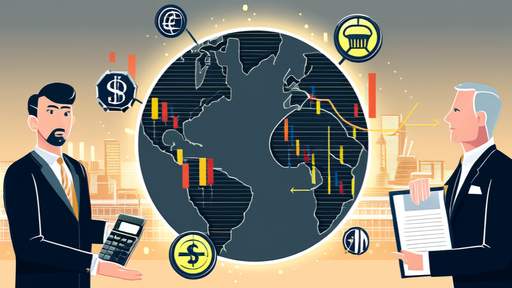
By Benjamin Evans/Jun 3, 2025

By Samuel Cooper/Jun 3, 2025

By Lily Simpson/Jun 3, 2025

By Eric Ward/Jun 3, 2025

By George Bailey/Jun 3, 2025

By Victoria Gonzalez/Jun 3, 2025

By Noah Bell/Jun 3, 2025

By Rebecca Stewart/Jun 3, 2025

By Grace Cox/Jun 3, 2025

By John Smith/Jun 3, 2025

By Emma Thompson/Jun 3, 2025
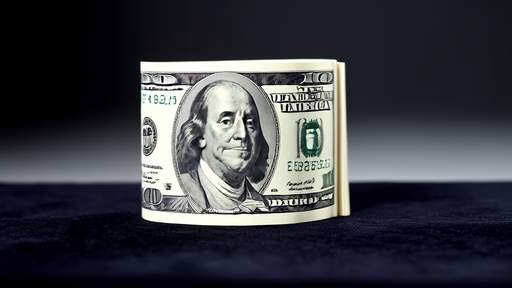
By Victoria Gonzalez/Jun 3, 2025
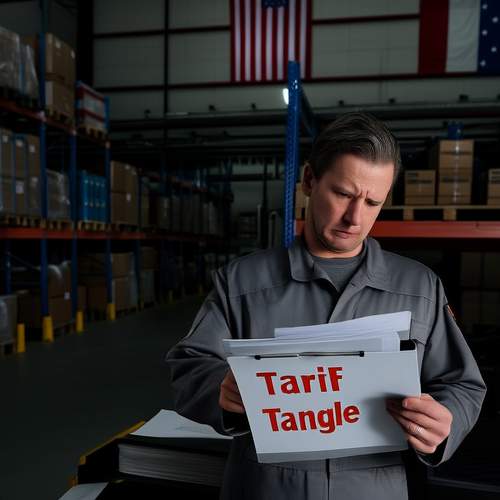
By George Bailey/Jun 3, 2025

By Samuel Cooper/Jun 3, 2025

By Michael Brown/Jun 3, 2025
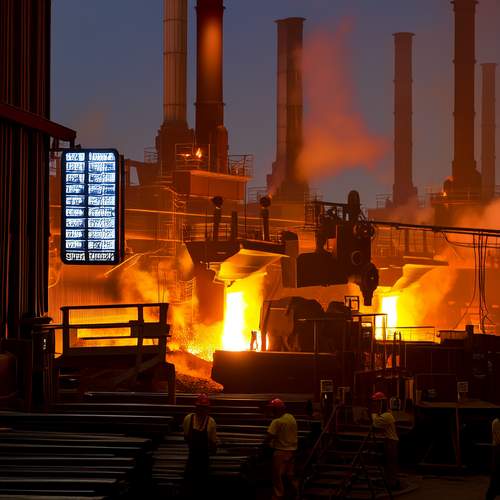
By Grace Cox/Jun 3, 2025
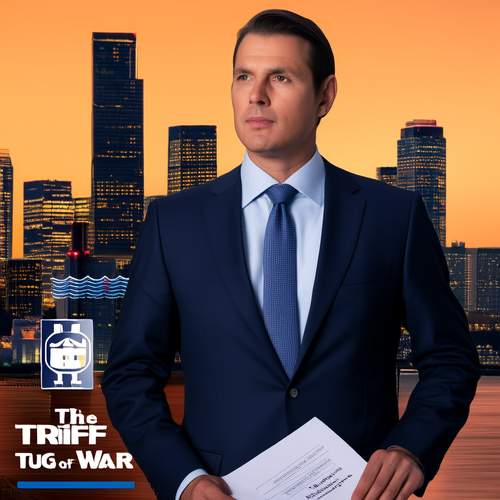
By Megan Clark/Jun 3, 2025
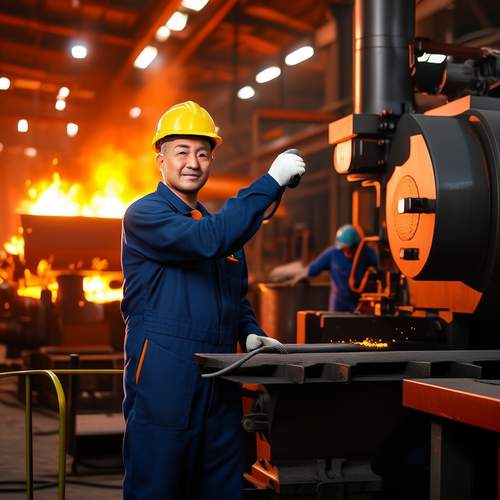
By Noah Bell/Jun 3, 2025
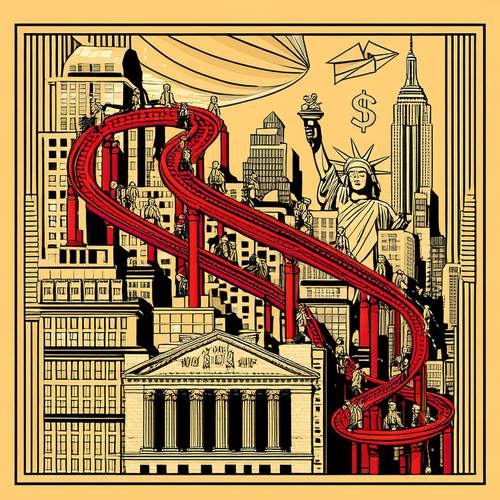
By Emma Thompson/Jun 3, 2025

By Rebecca Stewart/Jun 3, 2025